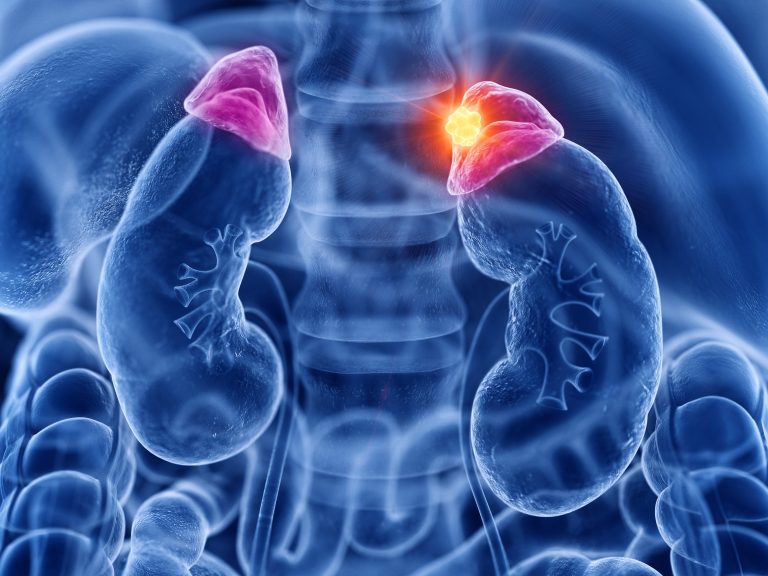
People with benign adrenal tumors are at higher risk for type 2 diabetes and high blood pressure than previously understood, according to new research from the University of Birmingham in the U.K.
The study, published in the Annals of Internal Medicine, revealed that more of these tumors secrete abnormal levels of the stress hormone cortisol than previously thought, making them more likely to cause cardiometabolic health problems in those affected.
Benign adrenal tumors, known as adrenal incidentalomas, are relatively common and found in up to 10% of all adults. The impact of these incidentalomas on the body varies and depends largely on whether they secrete potentially damaging hormones into the body or not.
One hormone that incidentalomas are known to secrete is the hormone cortisol, associated with the body’s response to stress. Previous studies suggested that around a third of adrenal incidentalomas secrete cortisol, putting those affected at higher risk for developing cardiometabolic symptoms such as type 2 diabetes and high blood pressure, but according to the current study the figure could actually be closer to half of those affected.
In total, 1305 people with benign adrenal incidentalomas were recruited to take part in the study. Their level of cortisol was assessed and the participants were then classified as having a non-hormone secreting tumor, possible Mild Autonomous Cortisol Secretion (MACS), definitive MACS or something else linked to high cortisol levels, such as Cushing’s syndrome.
Overall, almost half the participants had adrenal incidentalomas that did not secrete cortisol. Of the rest, 35% had suspected MACS and 11% had definitive MACS, with the remaining 5% diagnosed as having Cushing’s syndrome. Most of the participants with suspected or definitive MACS were female and over 50 years of age.
High blood pressure and increased blood glucose were more common in those with definitive MACS than in those with non-cortisol secreting tumors. “Compared to those without MACS, we observed that patients with MACS were more likely to be diagnosed with high blood pressure and to require three or more tablets to achieve an adequate blood pressure control. When we looked at patients with a diagnosis of type 2 diabetes, those with MACS were twice more likely to be treated with insulin, indicating that other medications haven’t helped managing their blood sugar levels,” said first author and University of Birmingham researcher Alessandro Prete in a press statement.
“Our hope is that this research will put a spotlight on this condition and increase awareness of its impact on health. We advocate that all patients who are found to carry an adrenal incidentaloma are tested for MACS and have their blood pressure and glucose levels measured regularly,” added Wiebke Arlt, a professor at the University of Birmingham who led the research.
The research team points out that up to 1.3 million adults in the U.K. alone could have MACS. They think faster diagnosis of this condition could help many people, particularly post-menopausal women, get the treatment they need or make earlier lifestyle adjustments to avoid developing type 2 diabetes or experiencing more advanced cardiovascular disease.











